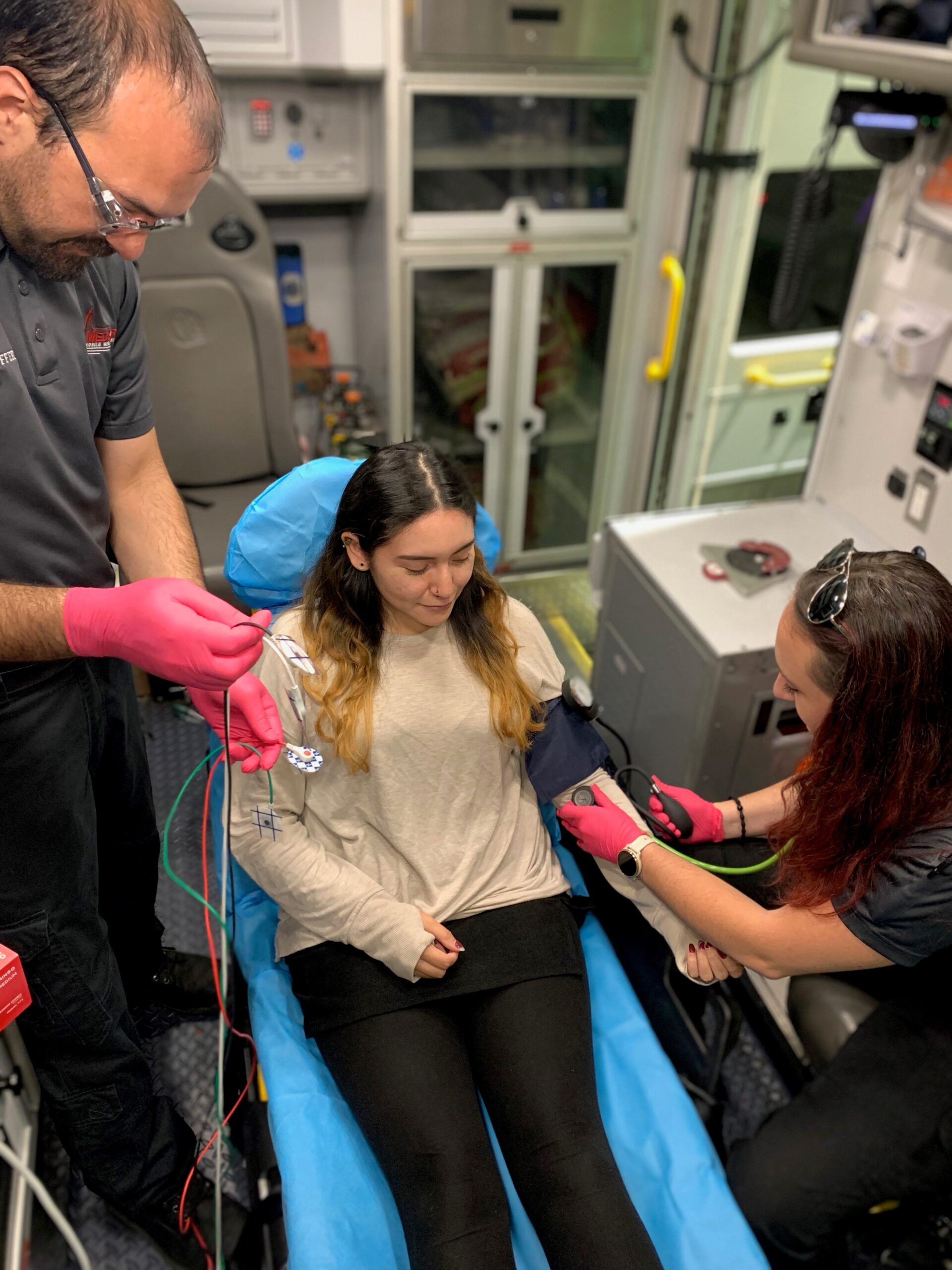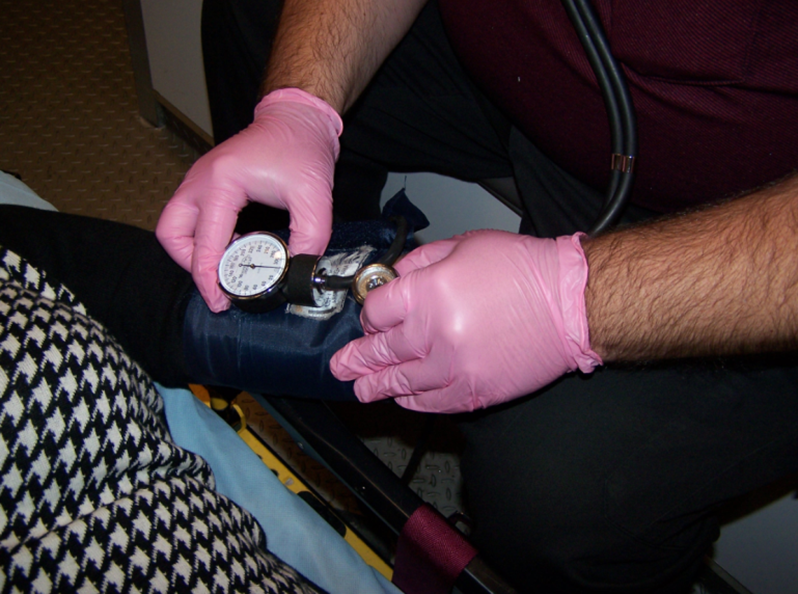Maintaining “Universal Precautions” for body substance isolation is paramount in protecting EMS workers from exposure to infectious diseases. For the 14th year, MedStar’s EMTs and Paramedics will be donning pink gloves to support breast cancer awareness and help fund cancer research.
About 1 in 8 women born today in the United States will get breast cancer at some point in their lives. There are estimates that 20-30% of patients with an early-stage cancer will have their cancer return as metastatic, even if they were told their early-stage cancer had been “cured.” Another 8% of new breast cancer cases are found to be metastatic at their initial diagnosis.
A portion of the purchase price for the gloves is donated to cancer research.
“The color really stands out,” said Shannon Rucker, MedStar Paramedic. “My wife is a breast cancer warrior, and she looks forward to seeing the pink gloves every year. Hopefully this will encourage people to think about breast cancer and talk to their doctors; and it’s nice to be able to recognize those who have fought the disease, especially those we have lost,” she added.
Next to skin cancer, breast cancer is the most common cancer type found in women in the United States.
In 2023, an estimated 297,790 new cases of invasive breast cancer will be diagnosed in women in the U.S., as well as 55,720 new cases of non-invasive (in situ) breast cancer. This year, an estimated 43,700 women will die from breast cancer in the U.S.

But it’s not just women, about 2,800 new cases of invasive breast cancer are expected to be diagnosed in men in 2023, and it is estimated 530 men will die from breast cancer this year.
Early detection is the key to positive outcomes.
In the beginning of the development process, breast cancer is too small to feel and does not cause signs and symptoms that are easily detected by the naked eye or to the touch. As it progresses and grows, however, breast cancer can cause changes in how the breasts look or feel.
Symptoms to watch out for include:
- A new lump in the breast or underarm (armpit).
- Thickening or swelling of part of the
- Irritation or dimpling of breast
- Redness or flaky skin in the nipple area or the
- Pulling in of the nipple or pain in the nipple
- Nipple discharge other than breast milk, including
- Any change in the size or the shape of the
- Pain in any area of the
Regular mammograms are the best tools doctors have found in discovering breast cancer early in its stage. Sometimes mammograms can detect cancer up to three years before it can be felt. When breast cancer is found in its early stages and treated appropriately, many women have the opportunity to go on to living long and healthy lives.






